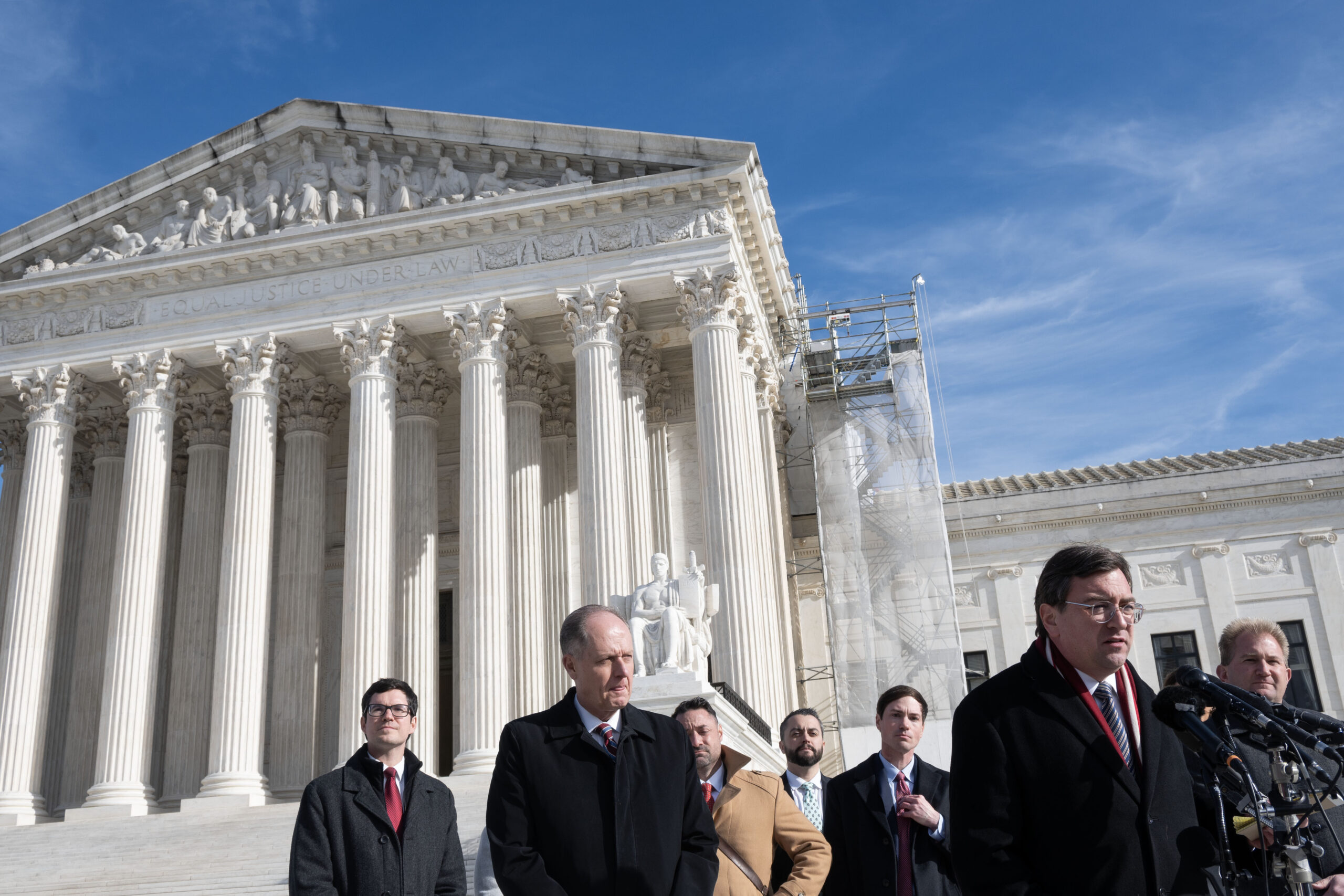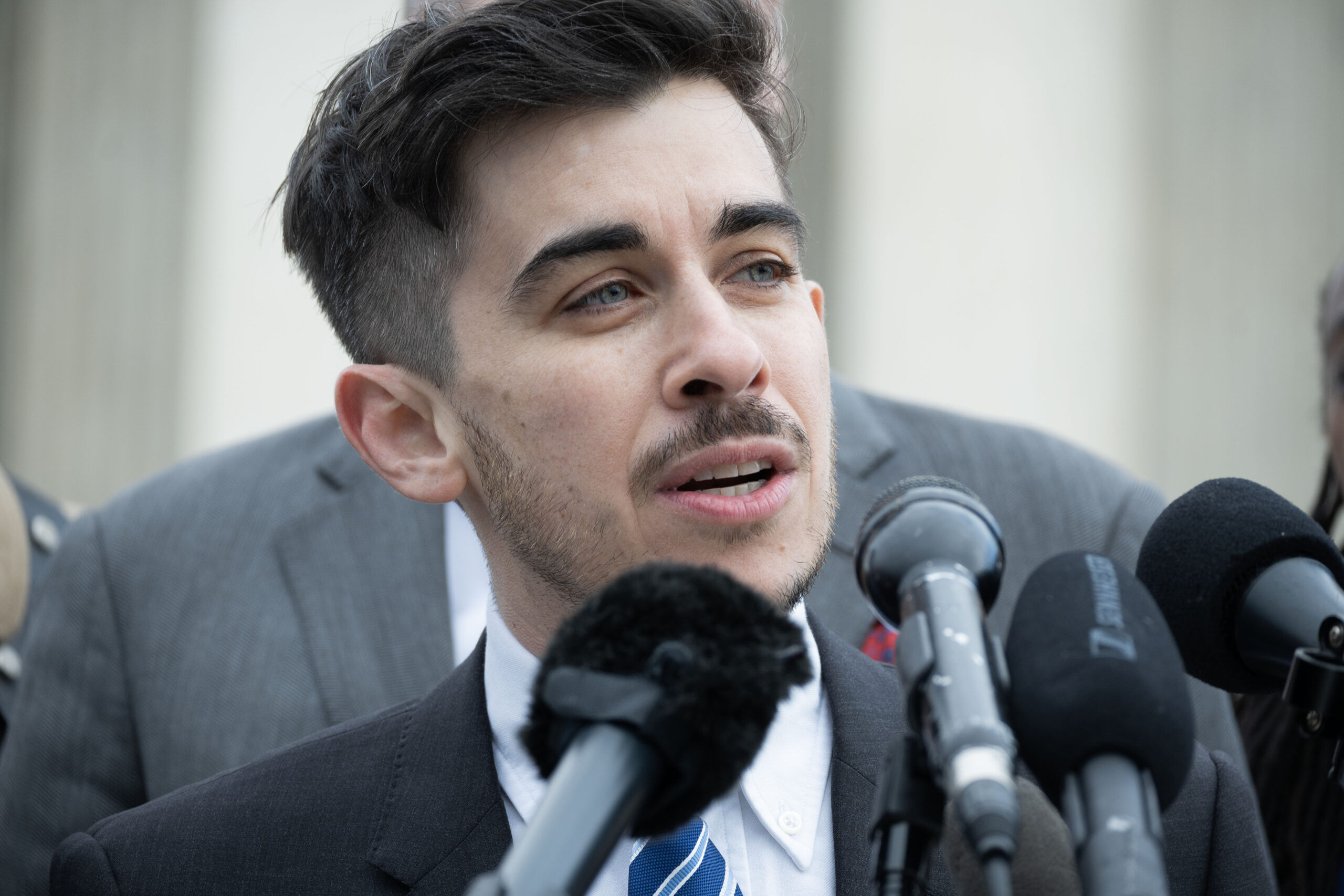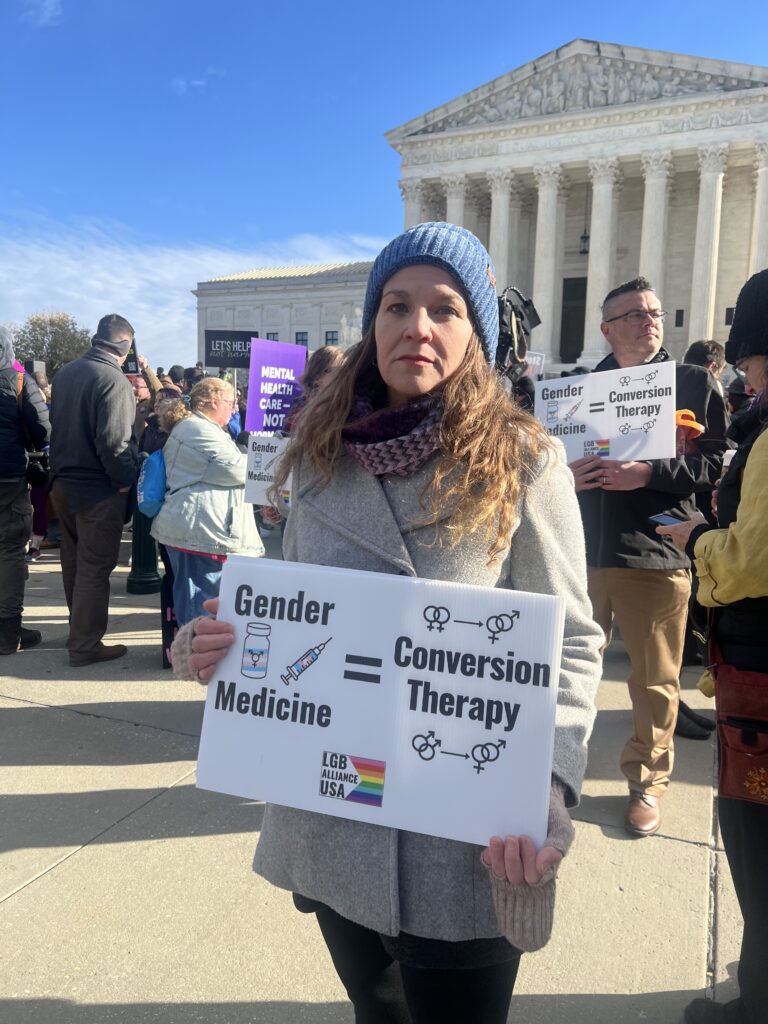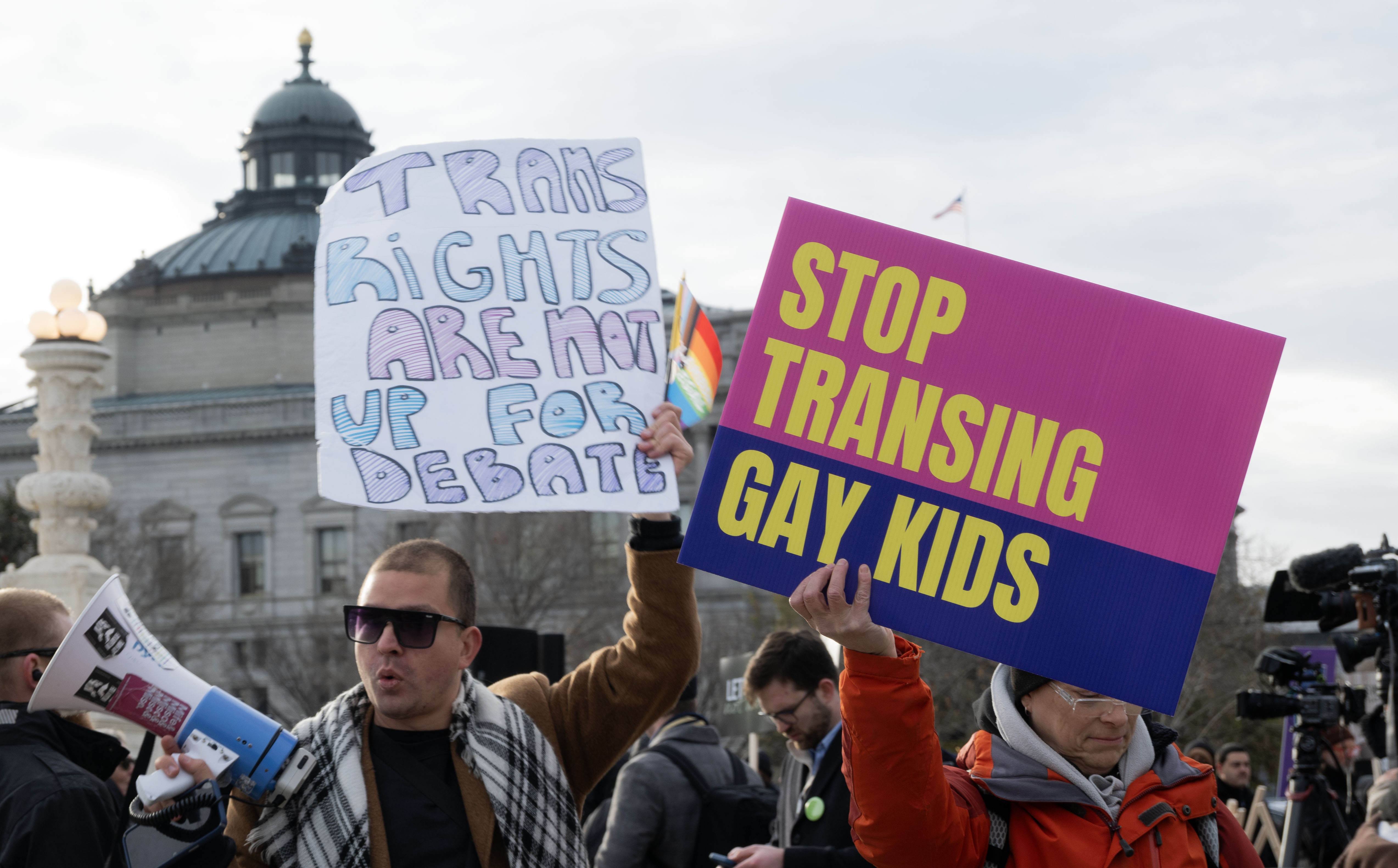WASHINGTON – The Supreme Court heard oral arguments Wednesday about the constitutionality of Tennessee’s 2023 ban on gender-affirming health care for minors.
The landmark case, United States v. Skrmetti, could have widespread implications for other restrictions on transgender health care across the country and for a potential national ban on gender-affirming care.
During arguments, U.S. Solicitor General Elizabeth Prelogar argued the Tennessee law violates equal protection under the 14th Amendment by discriminating based on sex.
“If you change the individual’s sex, it changes the result,” Prelogar said.
The Tennessee law, known as SB1, prohibits health care providers from administering certain medical treatments to transgender youth, including puberty blockers and hormone therapy.
Tennessee Solicitor General J. Matthew Rice defended the legislation on behalf of Tennessee Attorney General Jonathan Skrmetti, telling justices the state is restricting such medical treatments based on their purpose.

“Using hormones and puberty blockers to address a physical condition is far different from using it to address psychological distress associated with one’s body,” Rice said. “The Equal Protection Clause does not require the states to blind themselves to medical reality or to treat unlike things the same.”
“It’s a dodge to say that this is not based on sex, it’s based on medical purpose, when the medical purpose is utterly and entirely about sex,” Justice Elena Kagan said.
The American Civil Liberties Union and other legal advocates sued Tennesseee in April 2023 to block the ban on behalf of several Tennessee youths, their families and a health care provider.
A district court judge temporarily blocked Tennessee’s law from going into effect in June 2023, but the U.S. Court of Appeals for the Sixth Circuit later reversed its decision.
The Biden administration petitioned the Supreme Court to review the case in November 2023.
Addressing justices Wednesday, ACLU attorney Chase Strangio became the first openly transgender attorney to argue before the Supreme Court.
“By banning treatment only when it allows an adolescent to live, identify, or appear inconsistent with their birth sex, SB1 warrants heightened scrutiny under decades of precedent,” Strangio said.

The scientific evidence underpinning gender-affirming care was a key element of debate among justices and counsel. Strangio and Prelogar cited clinical studies in the United States showing this type of care can lower depression, anxiety and thoughts of suicide among teens.
Arguing to the contrary, Rice said some individuals experience regret and “de-transition” after receiving care.
In an exchange between Rice and Justice Clarence Thomas about such cases, Justice Sonya Sotomayor interjected: “I’m sorry, counselor. Every medical treatment has a risk, even taking aspirin. There is always going to be a percentage of the population under any medical treatment that’s going to suffer a harm.”
“Tennessee lawmakers enacted SB1 to protect minors from risky, unproven medical interventions,” Rice said.
In exchanges with Justice Samuel Alito and Chief Justice John Roberts, Rice said countries in Europe, such as the United Kingdom and Sweden, which were years ahead of the United States in providing this care, are now reconsidering whether the benefits outweigh the risks.
“It strikes me as a pretty heavy yellow light, if not red light, for this court to come in, the nine of us, and just constitutionalize the whole area,” Justice Brett Kavanaugh said.
Justice Ketanji Brown Jackson repeatedly expressed concern over how Tennessee was skirting the question of equal protection. Referring to the court’s 1976 decision in Virginia v. Loving that struck down laws banning interracial marriage, Jackson said: “I’m worried that we’re undermining the foundations of some of our bedrock equal protection cases.”
Justice Neil Gorsuch, considered a swing vote in this case, was nearly silent throughout the two-and-a-half hours of oral arguments.
In her closing rebuttal, Prelogar raised the possibility of the incoming conservative Congress passing a nationwide ban on gender-affirming care.
Should the Supreme Court uphold Tennessee’s law, Prelogar suggested, the precedent would be established for the constitutionality of bans on gender-affirming care nationwide.
Tennessee has enacted 21 anti-LGBTQ+ laws since 2015, the most in the nation. The ACLU has tracked more than 550 anti-LGBTQ+ bills introduced in 42 states this year alone, many of which are specifically anti-transgender bills.
More than half of U.S. states have restricted access to gender-affirming care for minors. This year, Ohio, Wyoming, South Carolina and New Hampshire banned such access, and Arkansas’s and Montana’s bans are currently halted and blocked due to legal challenges.
Interested parties from across the globe weighed in on the case in amicus briefs for the court’s consideration, including 50 briefs supporting Skrmetti and more than 30 opinions from advocates for transgender health care.
Five Democratic Maryland lawmakers joined other members of Congress in signing an amicus brief urging the court to strike down Tennessee’s ban.
The letter, which was signed by Sens. Ben Cardin and Chris Van Hollen as well as Reps. Jamie Raskin, David Trone and John Sarbanes, said that “concerning adolescents, the people best situated to make decisions about gender-affirming care are the patients, their parents, and their health care providers — not politicians.”
The American Psychological Association wrote in its brief to the court that gender-affirming care is “effective, evidence-based, and safe.” The APA cited studies showing that treatments like puberty blockers and hormone therapy improve the quality of life for transgender youth while lowering the risk for anxiety, depression and self-harm.
As conservative governors and state legislatures across the nation have passed anti-transgender laws in recent years, this case and others like it have been mired in public controversy.
Hundreds of protesters both opposing and supporting SB1 gathered outside the court Wednesday and roads around the court were closed to safely accommodate demonstrations.
Landon Richie, a 22-year-old organizer from Texas, traveled to Washington to show support for transgender youth and their advocates. Richie began receiving gender-affirming care when he was 13.
“I received this life-saving, medically necessary, age-appropriate care as a minor myself, and the impact that it had on my life is hard to put into words,” Richie, who is the policy coordinator for the Transgender Education Network of Texas, told Capital News Service. “If I had been forced to wait until 18, I don’t know if I honestly would have made it to that age.”
The case is going to have nationwide implications, Richie emphasized.
“It is our futures that are on the line, the futures of trans youth who deserve every access and right and joy that anybody else has,” he explained.
Jamie Reed of St. Louis, Missouri, came to Washington to advocate in favor of the Tennessee ban. The 44-year-old worked at a youth gender center for five years before filing a complaint that the center’s gender-affirming care practices were physically and emotionally harming children, she said.

Multiple patients at the center regretted or faced serious risks due to gender-affirming treatments, Reed told CNS. Reed, who also said she is in the leadership of an organization of gay and lesbian opponents of gender-affirming care, said she thinks the court will rule in favor of Tennessee.
The court is expected to issue its opinion on United States v. Skrmetti by July.
While justices deliberate, the appeals court decision upholding the ban means transgender youth in Tennessee cannot legally use puberty blockers and hormones.
Capital News Service Washington Bureau reporter Mennatalla Ibrahim contributed to this story.


You must be logged in to post a comment.